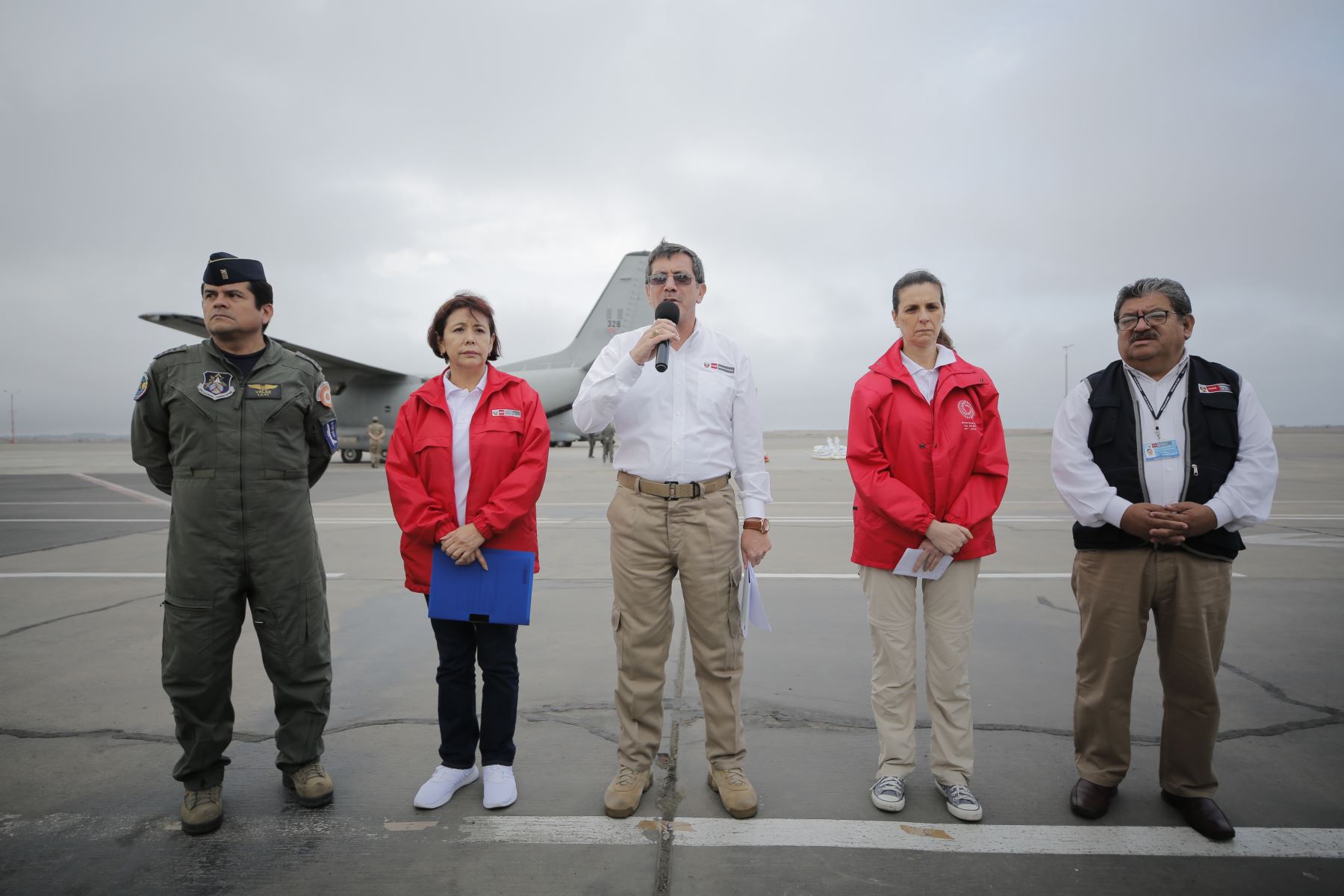
CALLAO (Peru), Jan 22 (NNN-ANDINA) — Defense Minister Jorge Chavez Cresta morning called for the establishment of humanitarian aid corridors in various areas of Peru due to roadblocks and in order to meet the population’s demands.
Remarks were made before the transfer of more than 13 tons of goods, including supplies for water treatment, food, medicines, and household items, by the Air Force of Peru (FAP) to southeastern Madre de Dios region.
“This is an articulated and joint work following the interruption of roads which is occurring in Madres de Dios; it is necessary to establish a humanitarian aid corridor to satisfy the demands of the population, not only in Puerto Maldonado, but also in Puno, Cusco and Arequipa, whose roads are being blocked,” he indicated.
The Cabinet member specified that, thanks to these humanitarian corridors, it will be possible to bring the necessary goods so that the population can be supplied —both with food and the necessary supplies to guarantee their safety.
The minister indicated that this joint activity with the Ministries of Housing, Health, and Women allows (the Peruvian State) to guarantee the well-being and health of the population affected by shortages generated due to roadblocks.
“As a State we guarantee our help. Once again, we call for peace, for establishing a humanitarian corridor so as to guarantee the health of our population; let us think about our family. Acts of violence do not lead to anything other than harming our population,” he affirmed.
In this sense, the high-ranking official reiterated the call to continue applying dialogue as a mechanism to meet the unsatisfied demands of various Peruvian regions.
“The only solution is dialogue, in an atmosphere of peace for the well-being of each of our populations and citizens,” he added.
At a separate press conference, Cresta affirmed that extremist and violent actions cannot be considered as protest demonstrations —after condemning the attack and fire at a police station in Zepita and at the Binational Border Assistance Center in Peru’s southern Puno region.
“My respect and solidarity with the National Police of Peru, not only for the professional work that they have carried out in the city of Lima on the second day, but also for the reprehensible attack and fire at the Zepita police station, in region Puno, and also to the officials of Puno Binational Border Assistance Center whose warehouse suffered a fire,” he expressed.
The Cabinet member lamented that extreme violence attacks had once again occurred at Arequipa city’s airport, as well as at Antapaccay mining company site in Espinar province, Peru’s southern Cusco region.
“These types of extremist and violent acts cannot be deemed as protest demonstrations,” he emphasized.
The Defense minister also categorically ruled out that foreign troops had been authorized to enter the national territory —as disseminated on social networks.
He rejected as fake news that Armed Forces’ tanks are being used to carry out repression activities against protesters —as is said on social networks.
Meanwhile, between 200 and 300 National Police members entered the Universidad Nacional Mayor de San Marcos (National University of San Marcos) campus in the Peruvian capital, Lima, on Saturday morning to evict numerous protesters who had been staying at the site for three days.
Supported by an armored car, the police managed to break one of the university campus’ main gates to allow law enforcement agents carrying shields and helmets to enter the area. The entry of said vehicle prompted the collapse of one of the entrance walls of the university compound.
Several trucks carrying police personnel, as well as patrol cars, remain stationed in the surroundings of the university area. Overflight of a police helicopter was witnessed for several minutes.
As is known, Peru currently faces a wave of protests called against President Dina Boluarte. Some events have triggered riots and clashes between police and protesters. — NNN-ANDINA




